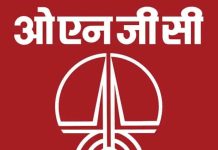Indian pharma Industry, under the Indian Pharmaceutical Alliance (IPA), have urged reforms to the nation’s drug quality inspection system to align it with global standards.
This call follows a recent alert by the Central Drugs Standard Control Organisation (CDSCO) identifying over 50 drugs as “Not of Standard Quality” (NSQ), raising public concerns about medicine safety.
IPA Proposes Streamlined Investigation Process
In a letter to Dr. Rajeev Singh Raghuvanshi, the Drugs Controller General of India (DCGI), the IPA outlined recommendations for improving drug investigation processes.
The Pharma industry body proposed giving companies a thirty-day notice to respond to allegations before releasing information about NSQ drugs publicly.
Sudhanshu Jain, Secretary-General of the IPA, emphasized the confusion caused by the interchangeable use of terms like ‘counterfeit’ and ‘spurious’.
He stressed the need for clearer distinctions to protect consumer trust and the pharmaceutical industry’s reputation.
The IPA also recommended that drug inspectors specify whether samples come from licensed or unlicensed premises.
Companies should have the opportunity to classify samples as NSQ or spurious, with justifications provided.
Additionally, the IPA advised the CDSCO to issue drug alerts only after thorough investigations confirm the samples’ status.
“These improvements would align India’s drug investigation process with global practices observed in markets such as the European Union and the United States,” Jain explained.
Government Responds
Dr. Raghuvanshi addressed the issue, stating that the government had recalled 45 drugs flagged as substandard or counterfeit by the CDSCO.
However, he clarified that only five drugs were classified as spurious, which involves deliberate falsification akin to counterfeiting.
He also differentiated between substandard drugs, which may have formulation issues, and spurious drugs, which involve false labelling.
“The CDSCO immediately notifies manufacturers and orders recalls for drugs identified as either substandard or spurious,” Raghuvanshi said.
Tackling Counterfeit Drugs
To combat counterfeit and substandard drugs, Jain outlined three focus areas:
*Capability Building: The IPA is educating field teams to report counterfeit issues promptly and assisting the government in capacity building.
*Process Improvements: Emphasizing purchases from authorized retailers and monitoring supply chains, especially in states like Maharashtra.
*Legislative Advocacy: Strengthening laws to report counterfeit incidents and increasing the role of testing laboratories. The IPA has filed a Supreme Court case seeking police involvement in severe counterfeit cases.
Regulatory Reforms
The Indian government has taken significant steps to address drug quality concerns. In 2022-23, authorities identified 3,053 substandard drugs and 424 spurious or adulterated ones.
Amendments to the Drugs and Cosmetics Act now impose stricter penalties, including non-bailable offences for counterfeit drug production.
Additionally, revised Good Manufacturing Practices (GMP) introduced in December 2023 set higher standards for pharmaceutical production. The CDSCO collaborates with state drug control bodies to ensure uniform enforcement.
In August 2023, the introduction of barcodes and QR codes on top medicine brands marked a milestone in combating counterfeit drugs. These codes allow consumers to verify product details, enhancing transparency and patient safety.
Moving Towards Safer Pharmaceuticals
The IPA and government agree on the need for reforms to ensure safer medicines. While the IPA seeks process enhancements, the government continues to tighten regulations.
As reported by businesstoday.in, together, these efforts aim to restore trust in India’s pharmaceutical industry and protect public health.

































